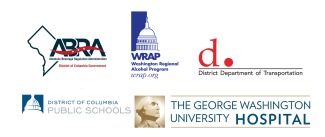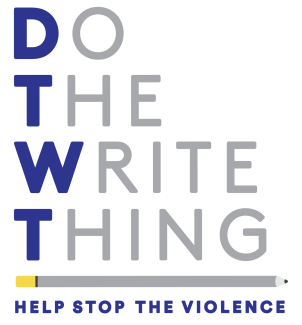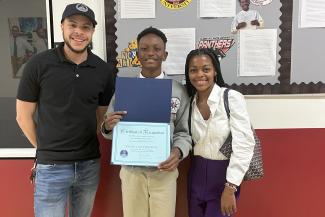¿Estás en estado de ebriedad? No hay tiempo para conducir: Desafío en vídeo para estudiantes de secundaria de DC

¿Estás en estado de ebriedad? No hay tiempo para conducir: Desafío en vídeo para estudiantes de secundaria de DC
Conducir bajo la influencia del alcohol o las drogas pone en riesgo su vida, la de otras personas en el automóvil y la de otras personas en la carretera. Según los Centros para el Control y la Prevención de Enfermedades, cada día mueren 29 personas en los Estados Unidos en accidentes automovilísticos en los que participa un conductor ebrio. Esto equivale a una muerte cada 50 minutos. Y, lamentablemente, uno de cada 10 estudiantes de secundaria conduce bajo los efectos del alcohol.
Pero podemos ayudar a cambiar esta trayectoria. Hacemos un llamado a los estudiantes de secundaria de DC para que ayuden.
¿Los discapacitados? El concurso anual de videos No Time to Drive desafía a los estudiantes de secundaria como usted a crear videos cortos para ayudar a informar a sus compañeros sobre las consecuencias de conducir en estado de ebriedad. Estos videos podrían ayudarlo a ganar hasta 10 horas de servicio comunitario que necesita para graduarse y, como beneficio adicional, tendrá la oportunidad de ganar premios. Esperamos que utilice su creatividad para ayudar a explicar a sus compañeros por qué no deberían conducir bajo la influencia del alcohol o las drogas.
Para el concurso de este año, debe enviar sus videos antes del 1 de marzo de 2024. Los videos ganadores se anunciarán el 18 de marzo de 2024. Los videos se publicarán en la página de YouTube de la Oficina del Procurador General y potencialmente en otras plataformas de redes sociales. Los vídeos de los ganadores del concurso anterior se pueden ver aquí.
Grabe:
- Decide si vas a crear el video tú mismo o trabajarás en equipo con otros estudiantes en un video (los equipos pueden incluir hasta 4 estudiantes de la misma escuela).
- Filma tu video (mínimo de 30 segundos y máximo de 60 segundos de duración)
- Complete el formulario del concurso a continuación (también vinculado aquí).
- Los vídeos deben grabarse en horizontal.
- Los videos podrán mostrar un título al inicio y deberán proporcionar créditos al final. Los créditos no cuentan en los 60 segundos de duración máxima del vídeo. Los créditos deben incluir:
- Nombre del estudiante que trabajó en el video y sus calificaciones.
- Escuela del DC a la que asisten los estudiantes
- ¡Se creativo y Diviertete!
Regístrese y envíe:
- Complete el formulario “Consentimiento para participar en un concurso de redes sociales para conductores bajo los efectos del alcohol para involucrar a los jóvenes en la prevención de muertes por accidentes de tránsito y desalentar el Acuerdo de subvención/liberación/exención de medios para conducir bajo los efectos del alcohol” (“Acuerdo”) disponible aquí o descárguelo aquí. Asegúrese de completar y enviar un Acuerdo firmado para cada miembro del equipo que trabajó en el envío.
- Envíe su Acuerdo y formulario de inscripción a OAGstudentcontest@dc.gov antes del 1 de marzo de 2024.
- Envíe videos únicamente al siguiente enlace de OAG BOX antes del 1 de marzo de 2024; no se aceptarán otros sitios de envío.
- Escriba “¿Discapacitado? No hay tiempo para conducir” en la línea de asunto.
- Si descarga el formulario de registro y el acuerdo, incluya los formularios completos en el correo electrónico. Si los envió a través de este sitio web, no es necesario que los incluya en el correo electrónico.
Envíe cualquier pregunta o comentario a OAGstudentcontest@dc.gov
Consejos para los vídeos:
- Investigar los efectos del consumo de alcohol y/o drogas en la capacidad de una persona para conducir y las consecuencias de conducir en estado de ebriedad.
- Habla lenta y claramente para que tus palabras sean entendidas por el público y los jueces.
- Asegúrese de que la música o los sonidos de fondo no interfieran con el diálogo hablado.
- El texto, el tamaño y la visualización de la pantalla deben ser legibles.
- Los envíos deben tener una duración mínima de 30 segundos y máxima de 60 segundos. Las pizarras y los créditos no se pueden superponer en el video ni incluirse en la asignación de 30 a 60 segundos. Las inscripciones que duren menos de 30 segundos o más de 60 segundos serán descalificadas.
- Los envíos deben tener menos de 50 GB.
Las reglas del concurso:
- La fecha límite para enviar la inscripción y el video es el 1 de marzo de 2024.
- Los ganadores se anunciarán el 18 de marzo de 2024.
- Su video debe abordar la concientización sobre la seguridad al conducir bajo los efectos del alcohol y las mejores prácticas.
- Las entradas deben tener una duración de entre 30 y 60 segundos.
- Las participaciones deben tener un tamaño inferior a 50 GB.
- Las inscripciones pueden ser enviadas individualmente o por un equipo de hasta 4 miembros de la misma escuela.
- Cada estudiante que participe en el concurso deberá figurar en el formulario de inscripción.
- Sólo una inscripción por estudiante. Si un estudiante participa en la creación de más de un video, todas las participaciones de ese estudiante serán descalificadas.
- No se permite asistencia profesional.
- No se permite el uso de material protegido por derechos de autor, incluida música de fondo y logotipos de empresas en la ropa o en otros lugares.
- Los envíos no deben contener imágenes inapropiadas o explícitas ni malas palabras.
- Se otorgarán 10 horas de servicio comunitario a cada concursante por los videos calificados enviados exitosamente antes del 1 de marzo de 2024. Las horas de servicio comunitario se otorgarán a los estudiantes a más tardar al final del año escolar 2023-2024.
- Se aceptarán envíos de videos tanto en inglés como en español.
- Un grupo de jueces determinará los ganadores. Todas las determinaciones de los jueces son definitivas.
- Los videos ganadores se pueden publicar en las cuentas de redes sociales de cualquiera de los patrocinadores del concurso, incluidos, entre otros, la Oficina del Procurador General, las Escuelas Públicas de DC y el Departamento de Transporte del Distrito.

Agencias y organizaciones patrocinadoras




